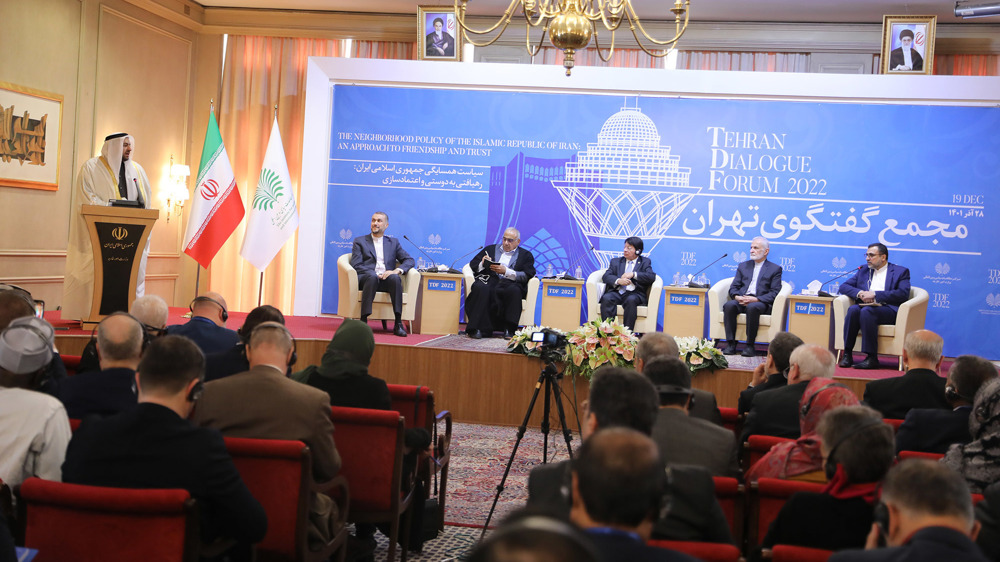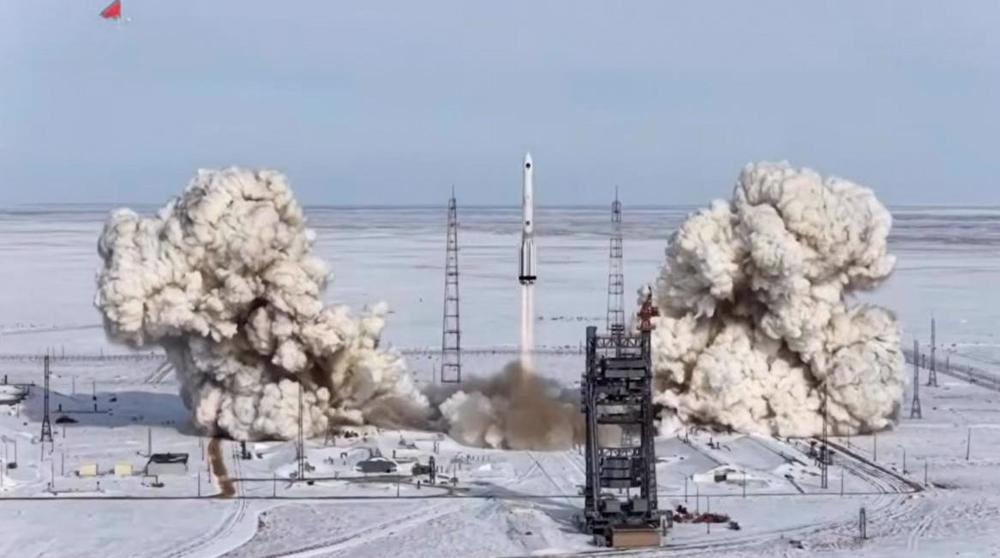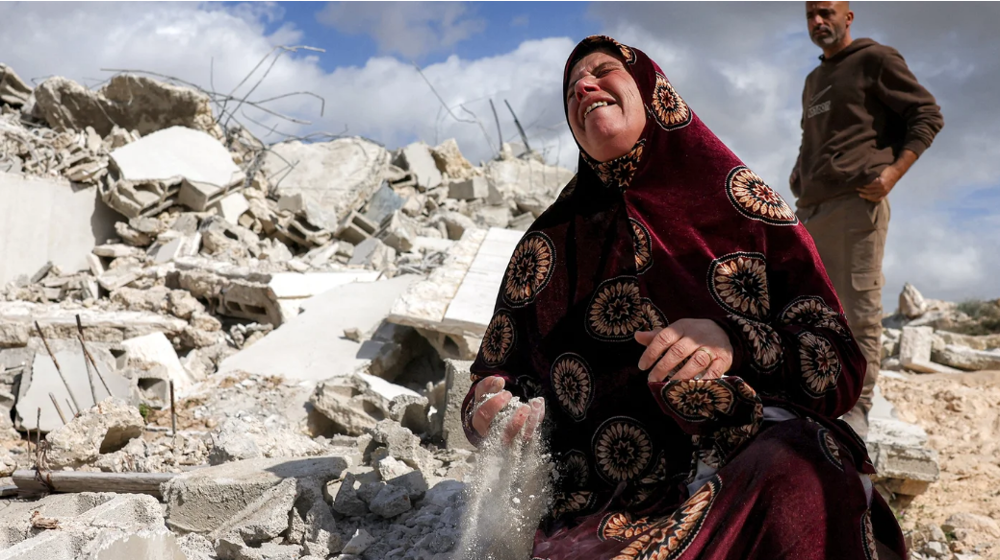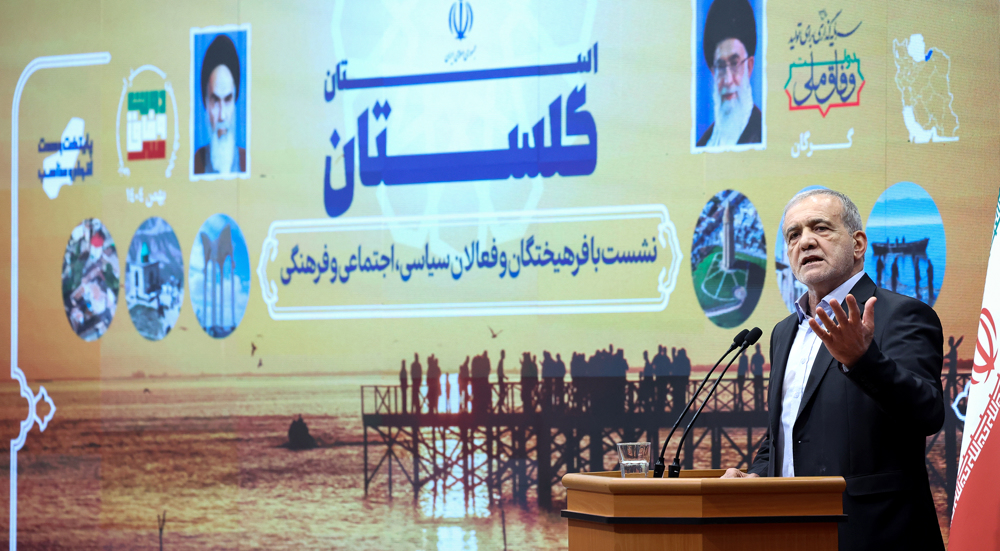Iran advocate of peace, regional security since Islamic Revolution: Analyst
Iran has been “undoubtedly” an advocate of peace and regional security since the Islamic Revolution of 1979, says political commentator Syed Mohsin Abbas, blaming the US and Israel’s “perennial interference” for the ongoing conflicts in the region.
Abbas made the comments on Press TV’s Spotlight Monday edition following the third Tehran Dialogue Forum (TDF) opening on the same day with 70 officials and representatives of think tanks and research centers from 36 countries taking part.
This year’s TDF initiative is focused on the policy of the Islamic Republic toward its neighbors and its approach to friendship and trust-building.
Abbas described the initiative as one of the most necessary ones for the West Asian region that there could possibly be, because “Iran has been an advocate of peace and regional security since the [Islamic] Revolution without a doubt.”
He further cited the Hormuz Peace Endeavor (HOPE) presented by former Iranian President Hassan Rouhani in a speech at his UN General Assembly meeting in September 2019, saying that the peace plan aimed at establishing security in the region with the participation of all regional countries.
He termed the HOPE initiative as the “default foreign policy stance of Iran” and slammed the US and Israel for their “perennial interference” in the region and their “manipulation of some of the leaders within the region” which has led to essentially nothing but “war, conflict, and plunder.”
“The partnership of Anglo-Zionist has led to nothing but instability in the region and Iran has always advocated the opposite,” he said, arguing that it is because of Iran that a lot of regional fights that could have turned into a huge disruption were settled.
“We all need to settle our issues in the region and not allow foreign powers to come and dictate their agendas based on their self-interest, economic interest and [their intention] to destruct Iran primarily, and any other Arab or Muslim nation in that region that wants independence,” he said.
Also Watch:
Abbas also noted that the nations regarded as the Persian Gulf Cooperation Council (GCC) have been established by the Anglo-Zionist Empire and owe their authority to Western powers, adding that they do “virtually everything” in terms of their policies and even their domestic and economic policies, which ultimately benefit the West.
And that, he rued, does not help to “create a genuinely stable, conflict-free West Asia” because “if you are not interested in your own people’s interest, in regional trade, in having fraternal relationships, or even military strategic alliances with your neighbors, you are destabilizing the region.”
Abbas added that by ending the “milking the cow” relationship with the West, regional countries can “diversify their economy” by doing more trade with their neighbors which will lead to “prosperity, peace and automatic sort of harmony in the region.”
‘No relationship between Iran, Saudi Arabia anytime soon’
Elsewhere in his remarks, Abbas argued that there will be no relationship between Iran and Saudi Arabia anytime soon, citing the Kingdom’s policies towards Iran.
“If Saudi Arabia and the Persian Gulf countries continue to challenge Iranian sovereignty, be involved in color revolutions, help finance ISIS offshoots along with the Americans, and try and destabilize the region with sectarian narratives to keep Iran isolated, these are not potent for a great relationship with Saudi Arabia anytime soon,” he stated.
Read More
Saudi Arabia severed diplomatic relations with Iran in January 2016 after Iranian protesters, enraged by the execution of prominent Shia cleric Sheikh Nimr Baqir al-Nimr by the Saudi regime, stormed its embassy in Tehran.
The kingdom then pursued a confrontational foreign policy toward the Islamic Republic, especially during the administration of former US president Donald Trump, with whom the Saudi rulers shared close ties.
Moreover, Saudi-sponsored media have stepped up their rhetoric against Iran amid the recent protests and deadly riots in the country following the death of 22-year-old Mahsa Amini in police custody.
Iranians have held protests over the passing of Amini. However, some extremist elements derailed the protests and incited violence against security forces. The Western media and Persian-language news networks, some financed by Saudi Arabia, continue to provoke riots in Iran.
Nevertheless, Saudi Arabia appears to have recently changed its antagonistic course, showing willingness through diplomatic channels and third parties to mend fences with Tehran and resume bilateral relations.
Meanwhile, the two neighbors remain deeply divided over a set of regional issues, some already mentioned, and mainly over the destructive and protracted Saudi war on Yemen.
VIDEO | Iran launches 'Holy Qur'an Does Not Burn' campaign to restore mosques damaged in unrest
VIDEO | Ramadan amid the rubble: Gaza’s historic Al-Zawiya market defies odds
UN sounds alarm over US-generated energy crisis in Cuba
Yemeni leader: US-Israeli focus on Iran stems From Tehran’s role in blocking their hostile schemes
Iran’s progress ‘miraculous’ despite sanctions: Nuclear chief
Netanyahu fears fruition of Iran US talks
VIDEO | Press TV's news headlines
China warns of 'measures' following CIA’s Chinese-language recruitment drive










 This makes it easy to access the Press TV website
This makes it easy to access the Press TV website